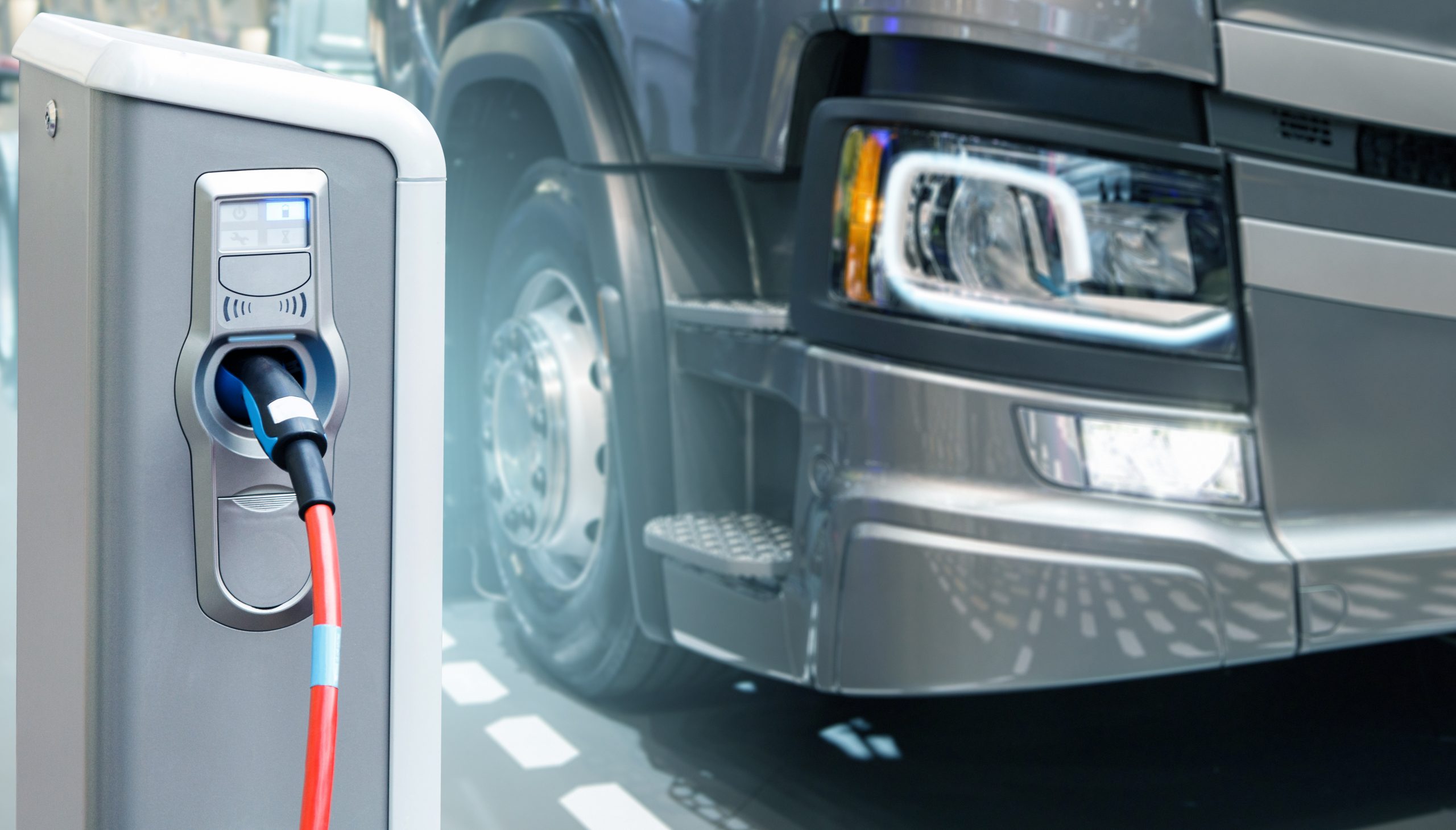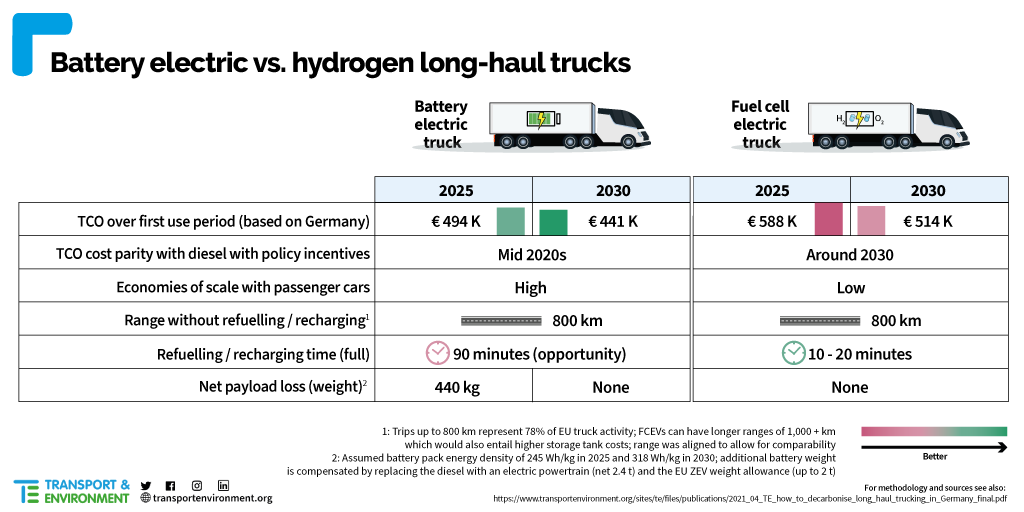
Why the future of long-haul trucking is electric
Too expensive, too little range, too heavy. These are the three common myths about battery-powered trucks, which are at best, inaccurate and, at worst, plain wrong.
Battery electric trucking is not a pipedream anymore: European truckmakers are now focusing on bringing battery electric trucks to the mass market for all vehicle segments, including long-haul [1]. The reason why they seem to place their bets on batteries instead of fuel cells for most haulage applications is ultimately down to simple economics.
Opponents argue that batteries would only be suitable for short-haul while fuel cell trucks (or even e-fuels) would excel in the long-haul segment. This is turning out to be a fallacy.
Differences in energy efficiency mean that directly electrifying trucks will always require half as much electricity than those running on green hydrogen. With trucks being heavily used capital goods, the advantage of a battery electric truck in terms of operating costs will grow with increasing mileage. What’s more, it requires less maintenance than any other technology. Both technologies will remain more expensive to buy than their diesel counterparts for years to come. But purchasing the truck is only one part of the equation, the other being the cost to fuel and maintain it.
Battery-powered trucks, whose main cost is their large battery, are also about to enter a perfect storm. Automotive battery production is now experiencing a self-reinforcing cost dynamic following the rapidly developing scale in the passenger car segment. This trend will now spill over to trucks.
What about range or payload? As it turns out, trucks don’t need a range of thousands of kilometres to carry out their job. Close to 80% of road freight activity in Europe is performed on trips below 800 km [2]. Given a dense network of charging infrastructure in the near future, electric trucks will be able to recharge during the driver’s mandatory rest periods. And with continuing improvements in battery energy density, electric long-haul trucks will lose less than half a tonne of payload by 2025 [3].

That’s not to say that hydrogen won’t be part of the solution to decarbonise heavy-duty transport. In some applications, fuel cell trucks may benefit from range, flexibility or cost advantages. Examples could be offroad vehicles, heavy-load and special freight movements, or drayage operations around sea ports and industrial clusters where green hydrogen will be available first.
Battery electric long-haul trucks with an 800 km range will likely reach cost parity with diesel as early as 2025 if the right policy incentives are in place [3]. Meanwhile, European truckmakers are set to begin series production of fuel cell trucks only from the second half of the decade [1].
Could it turn out that this race will be called even before all competitors have arrived at the starting blocks?
—-
[1]
Daimler (2021). Daimler Truck sets out ambitions as an independent company. Retrieved from https://media.daimler.com/marsMediaSite/en/instance/ko/Daimler-Truck-sets-out-ambitions-as-an-independent-company.xhtml?oid=50017847
MAN (2021). Executive Board and General Works Council agree on Key Issues Paper to realign the Company. Retrieved from https://press.mantruckandbus.com/corporate/executive-board-and-general-works-council-agree-on-key-issues-paper-to-realign-the-company/
Scania (2021). Scania’s commitment to battery electric vehicles. Retrieved from https://www.scania.com/group/en/home/newsroom/news/2021/Scanias-commitment-to-battery-electric-vehicles.html
Volvo (2021). Volvo Trucks ready to electrify a large part of goods transports. Retrieved from https://www.volvogroup.com/en/news-and-media/news/2021/apr/news-3948719.html
Renault Trucks (2021). Renault Trucks to offer an electric range for each market segment from 2023. Retrieved from https://www.renault-trucks.com/en/newsroom/press-releases/renault-trucks-offer-electric-range-each-market-segment-2023
[2]
Transport & Environment (2021). Unlocking electric trucking in the EU: recharging along highways. Retrieved from https://www.transportenvironment.org/publications/unlocking-electric-trucking-eu-recharging-along-highways
[3]
Transport & Environment (2021). How to decarbonise long-haul trucking in Germany. Retrieved from
https://www.transportenvironment.org/publications/how-decarbonise-long-haul-trucking-germany
